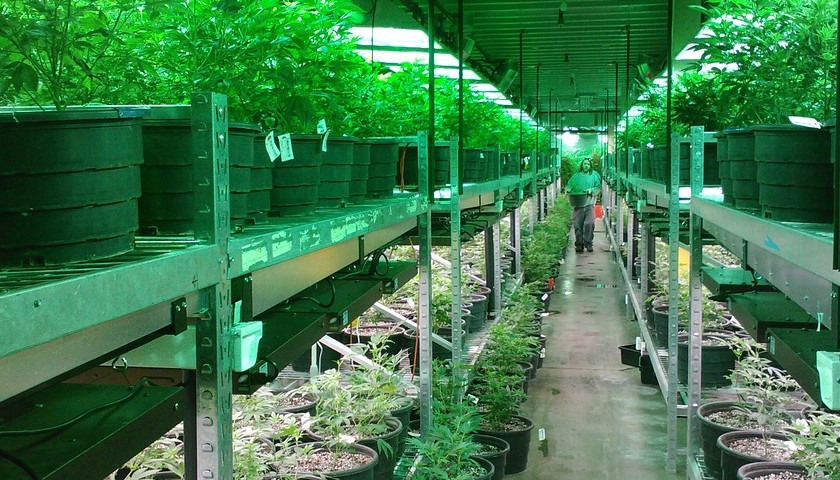by Victoria Antram
Ballotpedia is tracking 20 citizen-initiated measures in nine states related to marijuana that could appear before voters in 2022. As of 2022, recreational marijuana is legal in 18 states and Washington, D.C., and medical marijuana is legal in 36 states and D.C.
In Ohio, sponsors of an initiative to legalize recreational marijuana submitted an additional 29,918 signatures on January 13, after the secretary of state verified their initial petition contained 119,825 valid signatures–13,062 less than the number required. If enough of the additional signatures are found to be valid, the initiative will go before the state legislature. If the state legislature does not enact it outright, sponsors will have to collect a second round of 132,887 signatures to place it on the 2022 ballot. In 2015, Ohio voters defeated Issue 3 with a margin of 63.65% to 36.35%.
In Arkansas, voters could decide on two marijuana initiatives. One initiative would decriminalize marijuana, give limited immunity to cannabis businesses, and create regulations on the cannabis industry. The other would legalize marijuana use for individuals 21 years of age and older regardless of residency. Both campaigns have until July 8, 2022, to collect 89,151 valid signatures.
Florida voters could decide changes to the state’s medical marijuana amendment approved by voters in 2016 with two separate initiatives. Initiative #18-02 would add nine mental health disorders to the list of qualifying conditions to purchase and use medical marijuana. Initiative #18-05 would redefine medical use under the measure to include growing up to nine marijuana plants.
Nebraska has four initiatives cleared for circulation related to marijuana. Three of the initiatives would establish a state medical marijuana program and are sponsored by State Senators Anna Wishart (D) and Adam Morfeld (D). One initiative is a constitutional amendment, and the other two are state statutes. The Nebraska Hemp Company filed a constitutional amendment to legalize recreational marijuana. The Nebraska signature deadline is July 7, 2022.
In North Dakota, an initiative was cleared for signature gathering that would legalize marijuana use for residents 21 years of age and older and allow a person to possess, grow, process, or transport up to 12 cannabis plants for personal use. In 2018, North Dakota voters defeated Measure 3, an initiative that would have legalized marijuana, in a vote of 59.45% to 40.55%.
Kind Idaho filed an initiative to establish a state medical marijuana program. Sponsors attempted to qualify an identical initiative for the 2020 Idaho ballot but suspended their signature-gathering campaign in April 2020 due to the coronavirus pandemic. Voters could also decide on an initiative to legalize recreational marijuana. The initiative is sponsored by The Idaho Way. The campaigns need to submit 64,945 valid signatures by May 1, 2022.
In Missouri, there are three initiatives cleared for circulation that would legalize and regulate recreational marijuana. The initiatives were filed by three different sponsors. A constitutional amendment to change the state’s medical marijuana program approved by voters in 2018 was also cleared for circulation. It would allow medical marijuana patients to grow marijuana for personal use, decrease the cost of a patient identification card from $100 to $25, and allow up to three primary caregivers for a medical marijuana patient. The signature requirement for constitutional amendments is 160,199 signatures by May 8, 2022.
Oklahomans for Responsible Cannabis Action filed three initiatives. Two initiatives would (1) amend the state constitution to legalize marijuana for persons 21 years old and older and (2) impose a 15% excise tax on marijuana sales for purchases by an individual without a medical marijuana license. The third initiative would make changes to the state’s medical marijuana program to create the State Cannabis Commission to replace the Oklahoma Medical Marijuana Authority.
In South Dakota, an initiative to legalize marijuana was cleared for signature gathering. In 2020, 54.18% of voters approved Amendment A, which would have legalized marijuana, but it was later overturned by a supreme court ruling that found the initiative violated the state’s single-subject rule and constituted a revision of the constitution rather than an amendment. The 2022 initiative was filed by New Approach South Dakota, which also sponsored the 2020 amendment.
– – –
Victoria Antram is a contributor to The Center Square.








